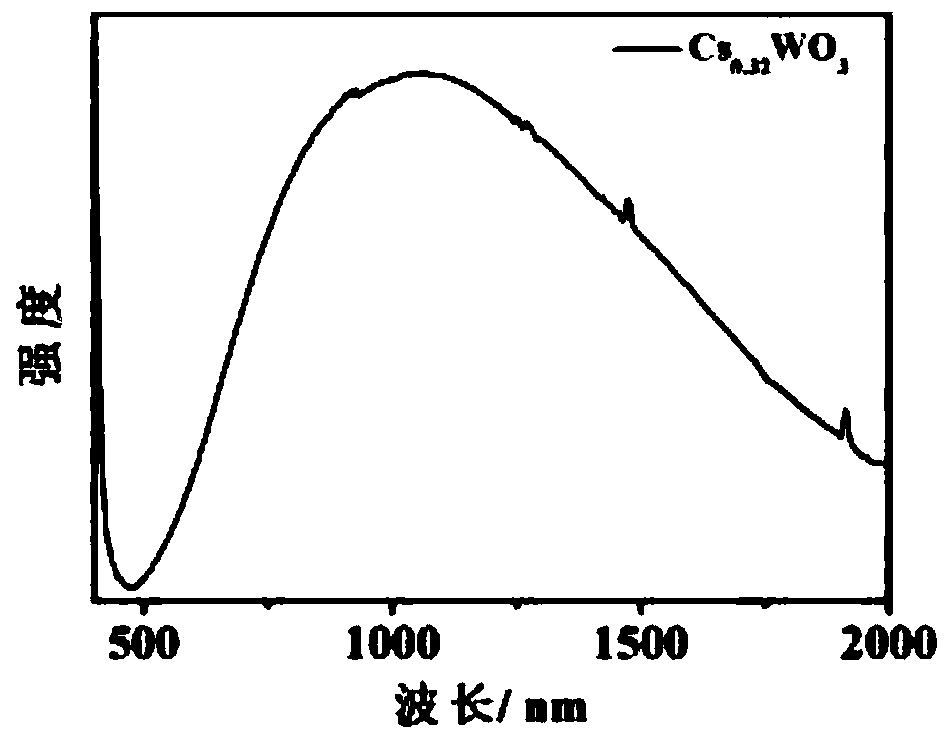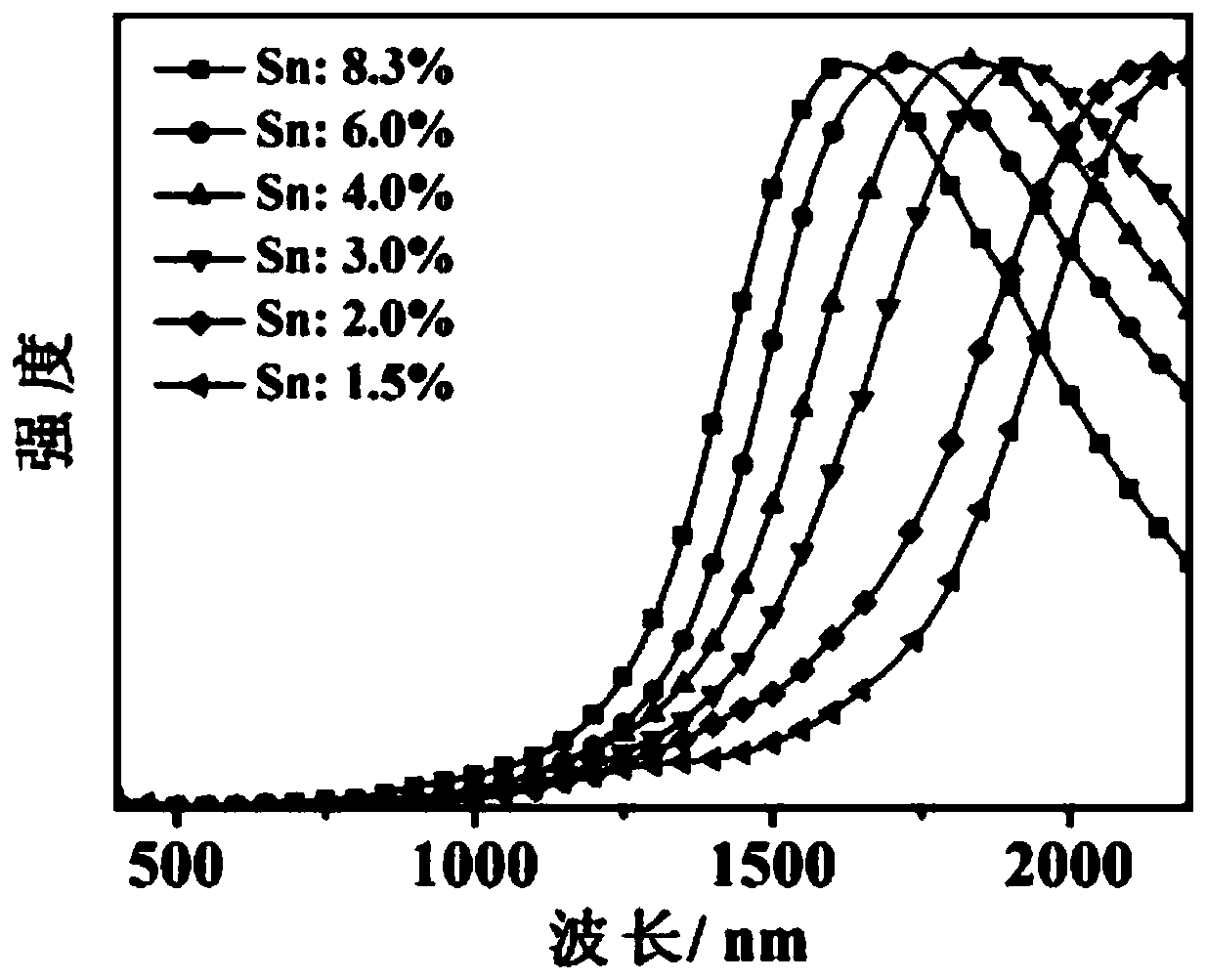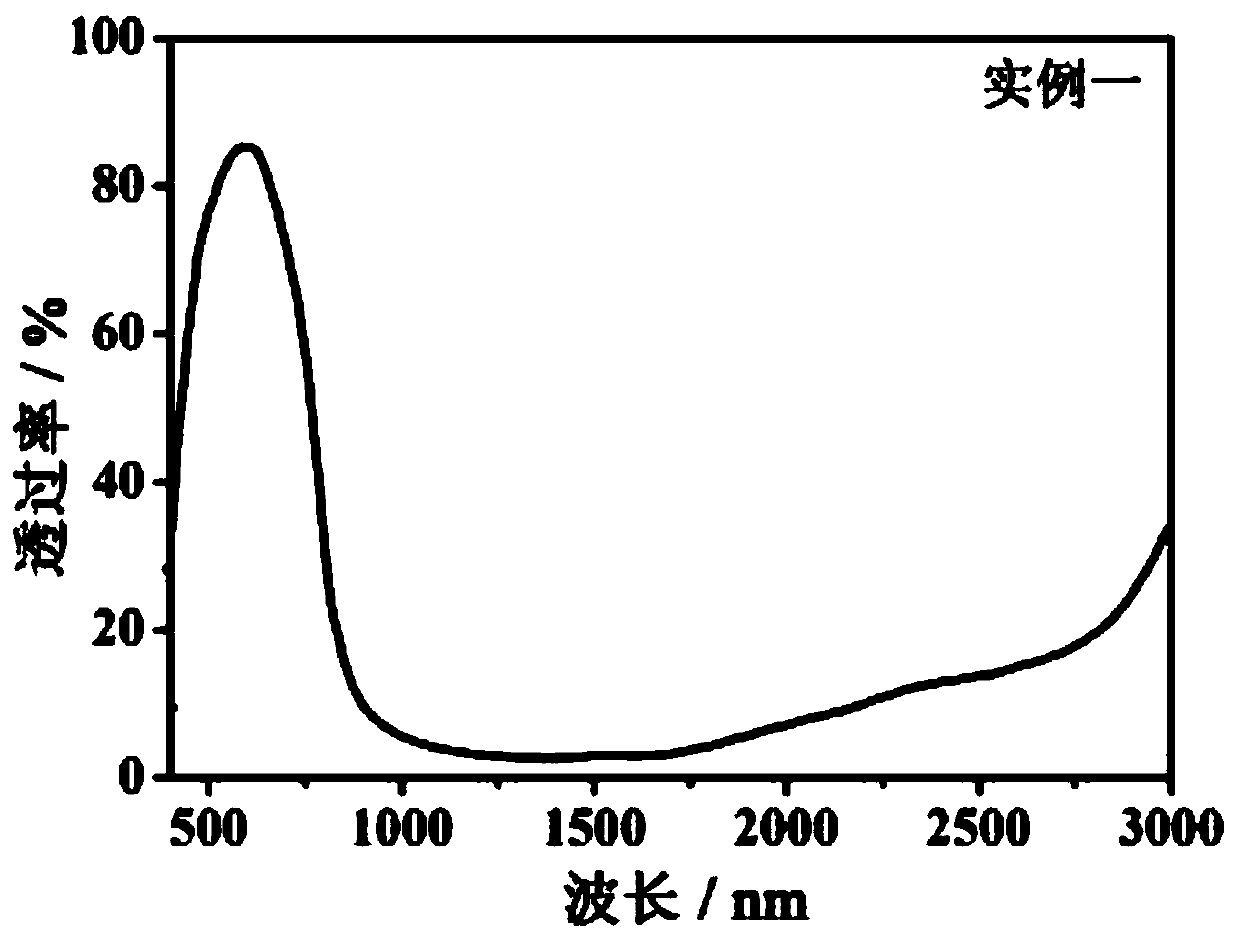A nanoparticle mixture and light-transmitting film
A nanoparticle and light-transmitting film technology, which is applied in the field of nanomaterials, can solve the problems of limited absorption capacity, different absorption range, and inability to cover the near-infrared band, and achieve the effects of strong absorption capacity, low cost, and wide absorption band range
- Summary
- Abstract
- Description
- Claims
- Application Information
AI Technical Summary
Problems solved by technology
Method used
Image
Examples
preparation example Construction
[0070] Preparation method of indium tin oxide nanoparticles:
[0071] Weigh 300mg of indium acetylacetonate and an appropriate amount of acetylacetonate tin chloride in a round bottom flask, add 17ml of octadecene solvent, and stir evenly with a magnet. Then, under inert gas protection, heat to 250°C for 30 minutes, then add 1 ml of oleic acid, and immediately heat the solution to 270°C for 1 hour. Then 3ml of oleylamine was added, and the solution was immediately heated to 290°C for 1h. After the reaction, when the temperature of the solution drops to room temperature, 30 ml of isopropanol is added to flocculate the nanoparticles. After the nanoparticles are separated by centrifugation, the prepared ITO nanoparticles coated with oleylamine oleic acid can be redispersed in 20.0 ml of cyclohexane solvent.
[0072] The above-mentioned cesium tungstate and indium tin oxide nanoparticles can expand the feed ratio of each component compared with the same period in the synthesis proces...
Embodiment 1
[0082] Mix the nanoparticle mixture according to the nanoparticles and their corresponding mass fractions shown in Table 1;
[0083] Table 2 The composition ratio of the nanoparticle mixture of Example 1
[0084]
[0085] Use the ultraviolet-visible-near infrared spectrophotometer to measure the transmittance spectrum of the heat insulation film added with the nanoparticle mixture of Example 1, such as image 3 As shown, it can be seen from the figure that most of the infrared light is intercepted.
Embodiment 2
[0087] Mix the nanoparticle mixture according to the nanoparticles and their corresponding mass fractions shown in Table 3;
[0088] Table 3 The composition ratio of the nanoparticle mixture of Example 2
[0089]
[0090]
[0091] Use an ultraviolet-visible-near-infrared spectrophotometer to measure the transmittance spectrum of the heat shield film added with the nanoparticle mixture of Example 2, such as Figure 4 As shown, it can be seen from the figure that most of the infrared light is intercepted.
PUM
| Property | Measurement | Unit |
|---|---|---|
| particle diameter | aaaaa | aaaaa |
| particle diameter | aaaaa | aaaaa |
| particle diameter | aaaaa | aaaaa |
Abstract
Description
Claims
Application Information
 Login to View More
Login to View More - R&D
- Intellectual Property
- Life Sciences
- Materials
- Tech Scout
- Unparalleled Data Quality
- Higher Quality Content
- 60% Fewer Hallucinations
Browse by: Latest US Patents, China's latest patents, Technical Efficacy Thesaurus, Application Domain, Technology Topic, Popular Technical Reports.
© 2025 PatSnap. All rights reserved.Legal|Privacy policy|Modern Slavery Act Transparency Statement|Sitemap|About US| Contact US: help@patsnap.com



